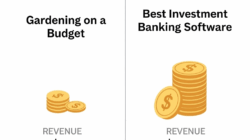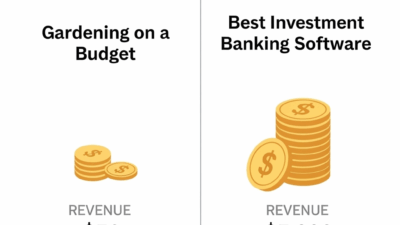Are you a website owner looking to monetize your platform through advertising? Exploring the diverse landscape of 7 Best Advertising Platforms opens up a world of opportunities for publishers. In this guide, we’ll delve into seven top-notch platforms that can help you maximize your website’s revenue potential.
Why Do I Need Advertising Publication Services
Think of ads on a website like helpful little assistants that keep things running smoothly. They’re not just there to clutter up space; they actually play a big role in keeping the website up and running. First off, they help pay the bills! Running a website costs money – think about things like hosting, creating content, and keeping everything updated. Ads help bring in the cash needed to cover these costs. Plus, they can be like a spotlight, shining on the awesome content the website offers, attracting more visitors who might not have found it otherwise. And here’s the cool part: when ads are relevant and placed well, they can actually make the user experience better. Imagine seeing an ad for something you’re super interested in while you’re reading an article – it’s like a personalized recommendation! So, ads aren’t just about making money; they’re like the friendly helpers that keep the website going strong while making sure visitors find what they need.
The Importance of Choosing an Advertising Platform for Publishers
Choosing the right advertising platform for publishers is crucial for maximizing revenue and enhancing the overall user experience. A well-chosen platform can effectively match ads with the website’s content and audience, ensuring relevance and engagement. Moreover, the platform’s targeting capabilities enable publishers to reach specific demographics or interests, increasing the likelihood of ad interaction and conversion.
Additionally, the analytics and reporting features provided by the platform offer valuable insights into ad performance, allowing publishers to optimize their strategies for better results. Ultimately, the choice of advertising platform directly impacts the financial success and effectiveness of a publisher’s monetization efforts, making it a critical decision in their business strategy.

Recommendations for the 7 Best Advertising Platforms
Choosing the “best” advertising platform depends on various factors such as the type of website, target audience, and advertising goals. However, here are seven popular advertising platforms that many publishers find effective:
- Google AdSense
Google AdSense is one of the largest and most widely used advertising platforms. It offers a variety of ad formats, including text, display, and video ads, and provides robust targeting options and analytics. - Facebook Audience Network
Facebook’s Audience Network extends its advertising reach beyond the social media platform to other websites and apps. It offers highly targeted ads based on Facebook user data and interests. - Amazon Advertising
Amazon Advertising allows publishers to monetize their websites by displaying relevant product ads from the Amazon marketplace. It’s particularly effective for websites with a focus on e-commerce or product reviews. - Taboola
Taboola is a content discovery platform that serves sponsored content recommendations on publisher websites. It’s known for its native advertising format, which seamlessly integrates with the look and feel of the website. - Outbrain
Similar to Taboola, Outbrain is a content recommendation platform that helps publishers monetize their websites by promoting sponsored content. It offers personalized recommendations based on user behavior. - Media.net
Media.net is a contextual advertising platform powered by Bing and Yahoo. It offers contextual ads that match the content of the website, providing relevant and non-intrusive ad experiences. - AdThrive
AdThrive is an advertising network specifically designed for bloggers and content creators. It offers premium ad placements and personalized support to help publishers maximize their ad revenue.
These are just a few examples, and there are many other advertising platforms available, each with its own strengths and specialties. It’s essential for publishers to research and test different platforms to find the ones that best suit their specific needs and objectives.

Start Making Money From Websites Now
To start making money from websites, you’ll need to explore various monetization strategies. Here’s a step-by-step guide to get you started:
- Choose a Niche
Select a niche or topic that you’re passionate about and that has a target audience willing to engage with your content. - Create High-Quality Content
Develop valuable and engaging content that resonates with your target audience. This could include articles, videos, podcasts, or other multimedia formats. - Build Your Website
Set up a professional-looking website using platforms like WordPress, Wix, or Squarespace. Ensure your website is user-friendly, mobile-responsive, and optimized for search engines (SEO). - Choose Monetization Methods
Explore different monetization methods to generate revenue from your website. Some common options include:- Advertising
Sign up with advertising networks like Google AdSense, Facebook Audience Network, or Media.net to display ads on your website. - Affiliate Marketing
Partner with companies and promote their products or services on your website. Earn a commission for each sale or referral generated through your affiliate links. - Sponsored Content
Collaborate with brands to create sponsored content, such as product reviews, sponsored posts, or sponsored videos. - Sell Products or Services
Develop and sell your own products (e.g., e-books, courses, merchandise) or offer services (e.g., consulting, coaching, freelance work) directly through your website. - Membership or Subscription
Create premium content or offer exclusive perks to members or subscribers who pay a recurring fee.
- Advertising
- Drive Traffic to Your Website
Increase visibility and attract visitors to your website through various channels, including social media marketing, search engine optimization (SEO), email marketing, and content promotion. - Track and Optimize Performance
Monitor your website’s performance using analytics tools (e.g., Google Analytics) to track metrics such as traffic, engagement, and revenue. Use this data to identify areas for improvement and optimize your monetization strategies accordingly. - Stay Compliant and Legal
Familiarize yourself with relevant laws and regulations, such as data protection laws (e.g., GDPR), advertising guidelines, and tax requirements, to ensure compliance and avoid legal issues.
Remember, building a successful website and generating income takes time, effort, and persistence. Keep experimenting with different strategies, learning from your experiences, and adapting to the evolving needs of your audience and the digital landscape.







